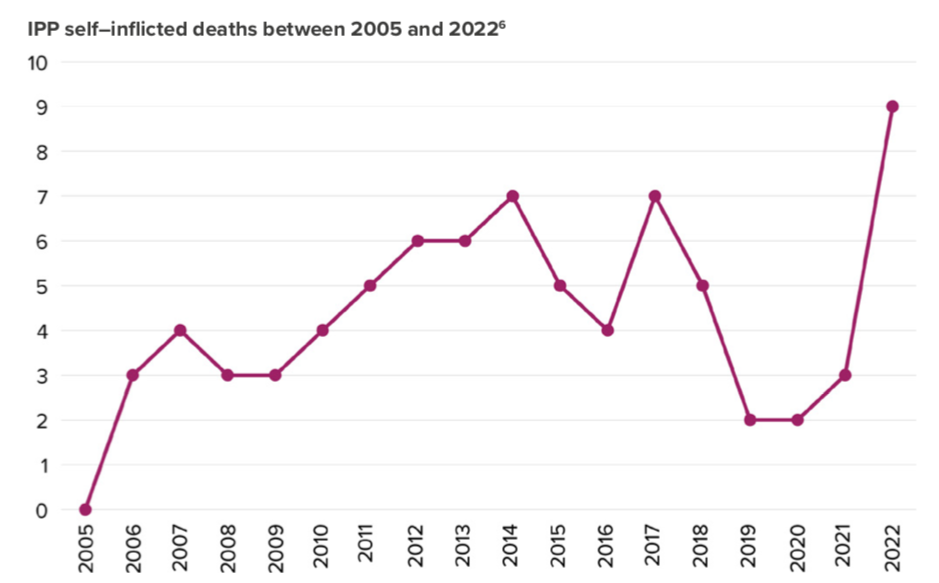Nine prisoners on indeterminate sentences took their own lives last year which is the highest number of self-inflicted deaths since the controversial IPP sentence was introduced in 2005. According to the Prisons and Probation Ombudsman, so far there have been 78 self-inflicted IPP deaths representing 6% of all self-inflicted prison deaths.
The Ombudsman, in a new publication published at the end of last week, has called for the IPP sentence to be considered ‘a potential risk factor for suicide and self-harm’. Twelve months ago, the House of Commons’ justice committee published a report arguing that ‘the psychological harm’ caused by IPPs was ‘a considerable barrier to progression’. ‘The indefinite nature of the sentence has contributed to feelings of hopelessness and despair that has resulted in high levels of self-harm and some suicides within the IPP population,’ MPs said.
The Government since confirmed that they would not be resentencing IPP prisoners. Those sentenced to an IPP sentence are set minimum terms and the Parole Board can only direct release if the prisoner has demonstrated that they have sufficiently reduced their risk.
According to the PPO, as of June there were still 1,312 IPP prisoners who had never been released from custody in England and Wales and more than half (51%) have been held for at least 10 years beyond the end of their minimum term. In addition, there were 1,597 recalled IPP prisoners in custody, making a total IPP prison population of 2,909. The recalled IPP prison population increased by 11% between June 2022 and June 2023.
Case study
The PPO report recounted the cases of Mr A who was found hanged in his cell. He was serving an IPP sentence. He had been recalled a total of five times since his first release in 2013. Mr A had agreed to work with a therapy service to try to break the cycle of release and recall to prison. This work would start after his next parole hearing.
Mr A had a history of attempted suicide and self-harm, anxiety and depression. He was serving an IPP sentence imposed in 2008 and was first released in 2013. He was recalled to prison in 2016 and then released and recalled a further four times, the last time on 4 August 2021. He was recalled for failing to keep to the terms of his licence by maintaining contact with probation services. He did not re-offend. The investigation found that, despite strong multi-disciplinary input and a high standard of care in his last prison, Mr A was left traumatised and ultimately hopeless by the number of times he had been released and recalled to prison and his apparently endless sentence







